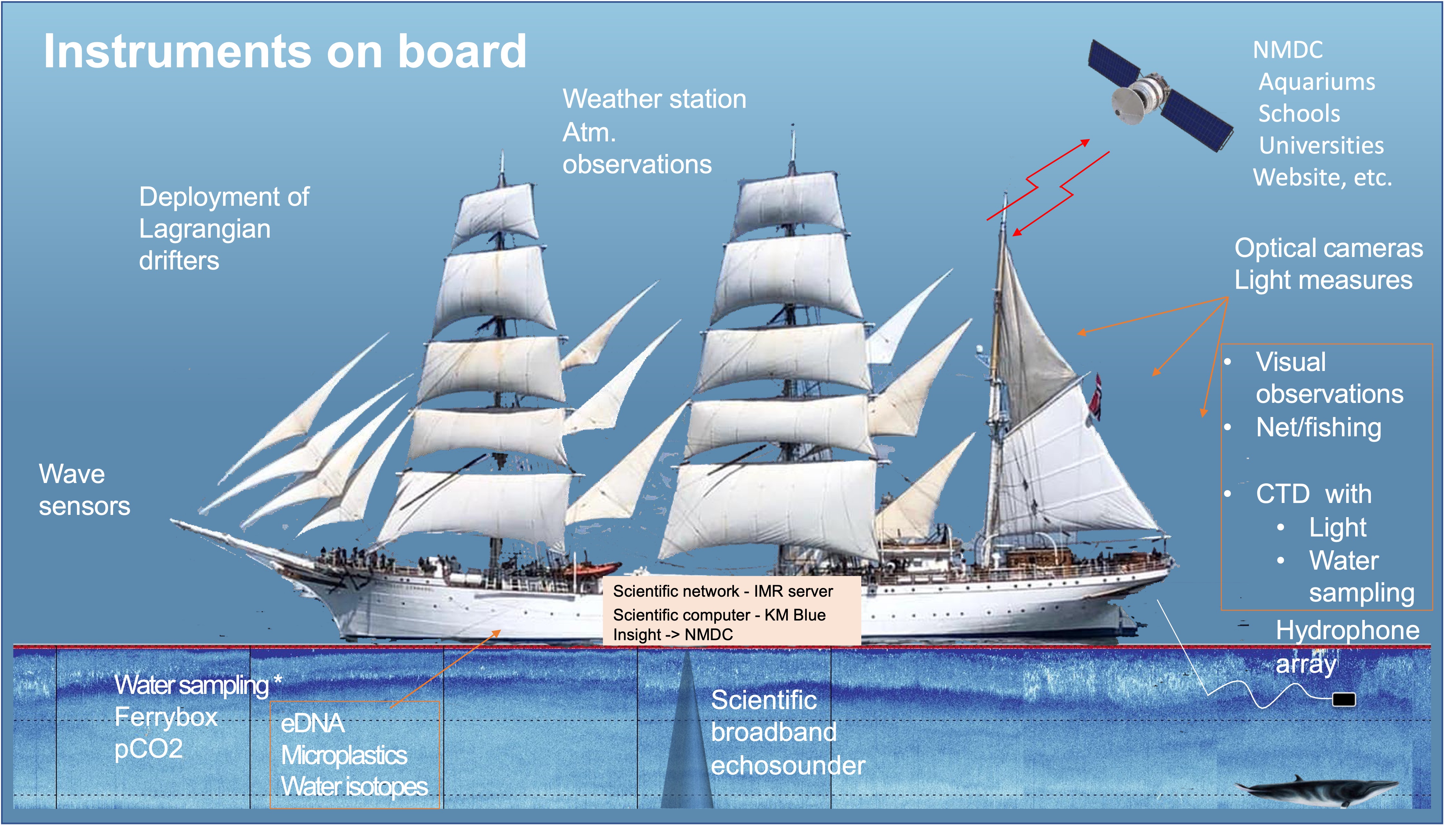Here we provide an overview of the work that will take place on the Statsraad Lehmkuhl but more details will be available in the Student Handbook. For the most part, work will take place in study teams, where you will have informal lectures and work on group projects, arranged around your watch. In the evenings there will be alternating presentations between expert lectures and group presentations.
Study teams
On board, students will work in study teams of 6-8 people, clustered around topics of interest. The intention is that your project group is all on the same watch, to enable you to work together on your projects. The teams will be tasked with regular monitoring and analyses of data in regards to core topics, notably (not exclusive):
- air sea interaction
- ocean current dynamics, mesoscale variability and transport of heat
- wind waves and wave-current interactions
- upper layer marine biology and biogeochemistry
- the distribution and concentration of pollutant material
- climate change and the polar seas
Instruments on board

The ship provides dedicated measurements while on passage including sea surface temperature, pCO2, fluorescence, turbidity, oxygen, salinity, waves, meteorological variables, CTD casts, and net sampling amongst others. These measurements allow fundamental upper ocean features to be monitored and linked to satellite data, such as crossing of meandering ocean frontal systems, internal waves and mesoscale eddies.
Work to be delivered
Each study team is tasked with the delivery of a group report of their analyses and findings. The delivery of these reports are mandatory to be granted the Joint Statsraad Lehmkuhl, Nansen Center and ESA Training Course Diploma and shall be received no later than by end of March 2023.